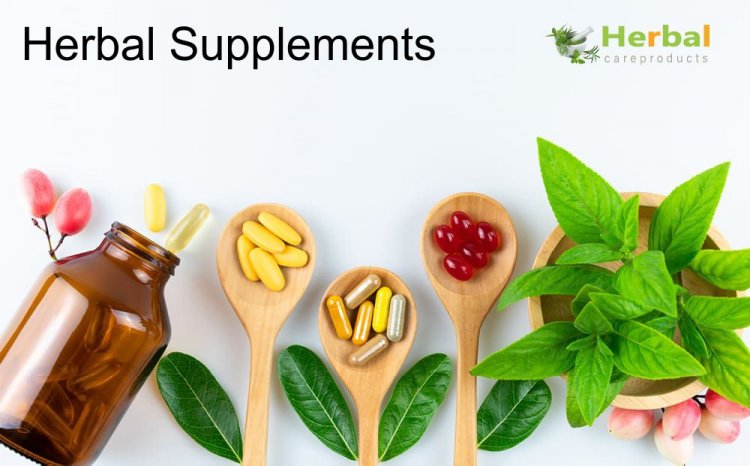8 Things You Need to Know Before You Take Herbal Supplements
Herbal products are becoming more and more popular with people who want to improve their health, but this doesn’t mean they’re safe or effective.

Herbal Supplements
Herbal products are becoming more and more popular with people who want to improve their health, but this doesn’t mean they’re safe or effective. Before you start taking any herbal supplement, there are some important things you need to know about how they work and what it means when different companies claim their product works best. Here are 8 things you need to know before you take herbal supplements.
Don’t Take an Unverified Supplement
Some herbal supplements have medicinal properties, but it’s important to know that not all herbal products are equal. Just because you can buy a product at your local drugstore or order it online doesn’t mean it’s 100% safe and effective. Never take an herbal supplement unless you’ve verified its ingredients with a qualified practitioner. In addition, some herbs can interact negatively with other medications, so before taking any herb (herbal or otherwise), tell your doctor if you're taking any prescription drugs or over-the-counter remedies—even vitamins. Your pharmacist is another good resource for verifying which supplements are compatible with certain drugs and helping identify side effects that might be worth mentioning to your doctor.
Do Not Substitute For Professional Treatment
While herbal supplements can be helpful for mild ailments, always consult a doctor before taking them. Do not self-diagnose or treat yourself with herbal products unless you’ve received professional treatment from a physician. Just because herbal supplements are natural does not mean they aren’t harmful if you do not use them correctly. In addition, some of these products are potent and may interact negatively with medications or other herbs, leading to further health complications. These complications could be serious enough that even your best efforts at holistic healing won’t help you overcome an injury or cure a disease. Be careful when Buy Best Herbal Supplements Products and using herbal supplements; they are powerful remedies that require expert knowledge of medicinal properties and exact dosing in order to avoid complications.
Watch Out For Dangerous Side Effects
There are times when herbal supplements can cause complications, such as liver failure. Some herbal products contain chemicals that could be harmful if taken in large amounts. Always read warning labels and seek medical attention if you feel like you’re suffering from side effects of an herbal supplement. If you have a medical condition, speak with your doctor before taking herbal supplements; it’s important that your treatment plan is not interrupted by these over-the-counter products.
There Are Side Effects
Though often referred to as natural, herbal supplements can still have side effects. Be sure you know what they are and how they might affect you before you take them, particularly if you have a medical condition. If in doubt, consult with your doctor before taking any new supplement. In addition, some herbs (like echinacea) could interfere with prescription medications like antibiotics or blood thinners. And as always, talk to your doctor before stopping any medication or changing anything about your diet and exercise routine without consulting him or her first.
Pregnancy Is a No Go Zone
Pregnant and breastfeeding women should never take Herbal Care Products unless under strict medical supervision. These products can interfere with estrogen levels in a developing fetus or nursing baby, which could cause major developmental issues down the road. The most important thing you can do for your child is make sure his or her mother gets enough vitamins and minerals through food sources (like fruits, vegetables, whole grains, and lean meats) but no one said you had to get them from supplements.
Don’t Self-Diagnose
It’s important to note that some herbal supplements can interfere with other medications. Your regular doctor is your best source for information about which herbal supplements are safe and how they interact with other medications you may be taking. It’s possible for certain herbs to cause adverse reactions when combined with prescription medication, so self-diagnosing or self-treating a medical condition is not advised. If you have any questions about your herbal supplement, it’s best to speak with your doctor before beginning treatment—just as you would if you were starting a new prescription drug. It's also important to remember that although many herbs can have beneficial effects on various ailments, they are not intended as a substitute for appropriate medical care and treatment.
Do Your Research
Always read ingredient labels and don’t purchase a product that includes an ingredient you can’t pronounce. Double-check nutrition facts too. A few extra calories here and there can add up over time and make a big difference in your weight. For example, if you drink 10 diet sodas each day, you’re getting about 300 calories extra a week—that's about 11 pounds in one year! The key is moderation, not giving everything up cold turkey. Always read ingredient labels and don’t purchase a product that includes an ingredient you can’t pronounce. Double-check nutrition facts too. A few extra calories here and there can add up over time and make a big difference in your weight.
Use the Right Dosage
Dosage is extremely important when it comes to herbal supplements, as many herbs have side effects and can interact with other medications. When in doubt, check with your doctor or a licensed naturopath. As you're taking herbal supplements, also keep an eye out for adverse reactions like diarrhea, nausea, or dizziness; there may be another treatment that works better for you. You should also pay attention to allergic reactions: if you notice any swelling of your lips or face or hives on your skin after taking an herb supplement, take it immediately out of your diet. Be aware that certain herbs (such as ragweed) can cause allergic reactions during pollen season even if they've been dried and ground into powder form.
What's Your Reaction?
















